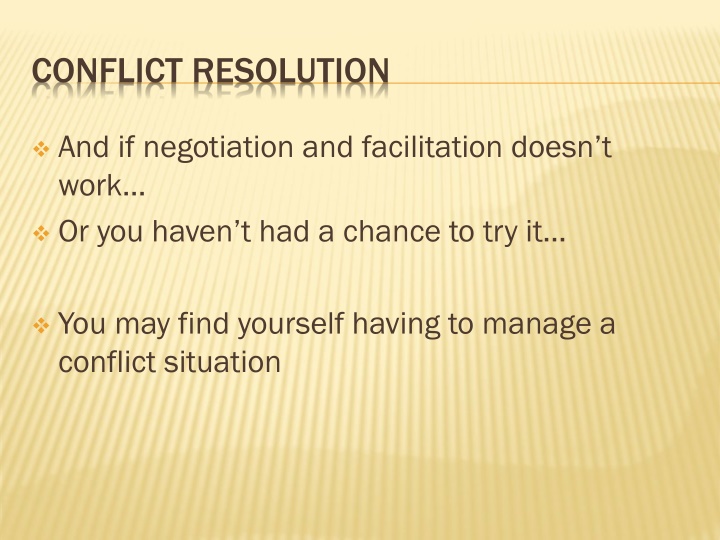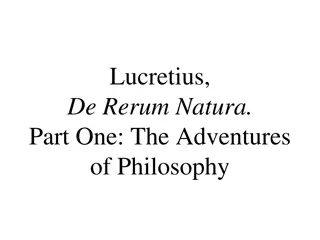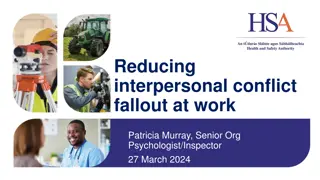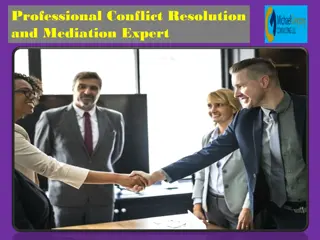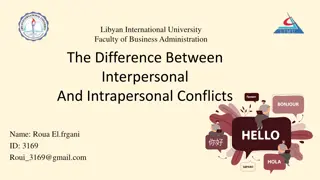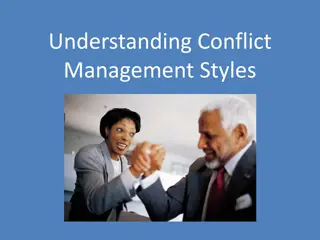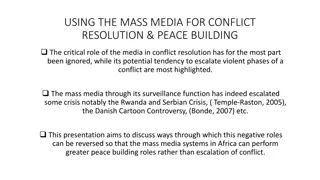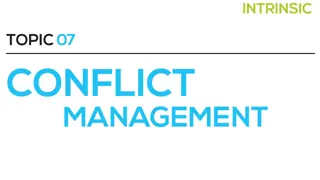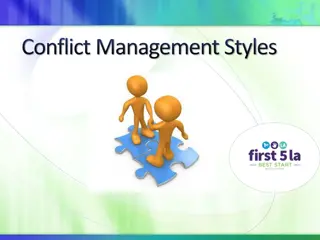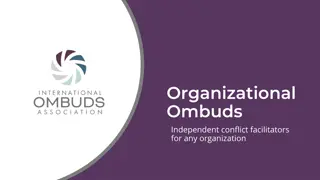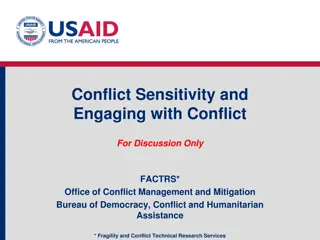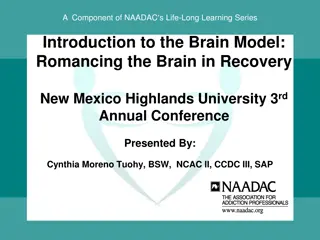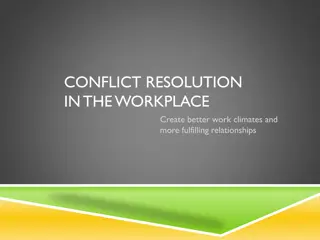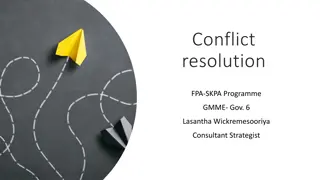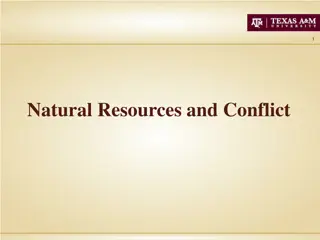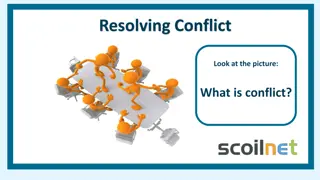Conflict Resolution Strategies for Managing Natura 2000 Site Conflicts
When faced with conflict at a Natura 2000 site, understanding potential triggers and employing effective communication skills, both verbal and non-verbal, are crucial. This includes managing body language, using appropriate language, active listening, and considering various influences such as attitudes and stress. Exploring theories like the Frustration-Aggression Hypothesis can provide insights into conflict escalation. By applying negotiation techniques and conflict management strategies, conflicts can be addressed constructively.
Download Presentation

Please find below an Image/Link to download the presentation.
The content on the website is provided AS IS for your information and personal use only. It may not be sold, licensed, or shared on other websites without obtaining consent from the author.If you encounter any issues during the download, it is possible that the publisher has removed the file from their server.
You are allowed to download the files provided on this website for personal or commercial use, subject to the condition that they are used lawfully. All files are the property of their respective owners.
The content on the website is provided AS IS for your information and personal use only. It may not be sold, licensed, or shared on other websites without obtaining consent from the author.
E N D
Presentation Transcript
CONFLICT RESOLUTION And if negotiation and facilitation doesn t work Or you haven t had a chance to try it You may find yourself having to manage a conflict situation
What might be potential areas of conflict on a Natura 2000 site? What might trigger a confrontational reaction? What can we do about these things?
Dealing with potential conflict requires effective communication skills!
CONSIDER WHAT NON VERBAL STRATEGIES YOU CAN EMPLOY
NON-VERBAL COMMUNICATION Remember all the things we talked about previously Facial expressions Eye contact Interpersonal distance Touch Body orientation and posture Hand and other gestures Your appearance
CONSIDER WHAT VERBAL STRATEGIES YOU CAN EMPLOY
VERBAL COMMUNICATION Effective Questioning How you say things (para language) Being assertive, not aggressive And active listening of course
POTENTIAL INFLUENCES We ve looked at: Body Language/ Non- Verbal Communication Language used Listening skills What about:- Attitudes Stress Clarity Culture Existing knowledge Assumptions Context
A FEW THEORIES Frustration Aggression Hypothesis Implicit Personality Theories Impression Formation
FRUSTRATION-AGGRESSION HYPOTHESIS Proposed that all aggression is caused by some kind of frustration Usually assumed that frustration always leads to aggression Put forward by Berkowitz. Idea has some support from comparative studies of overcrowding in animals (& studies of people)
IMPLICIT PERSONALITY THEORIES Assumptions people make that two or more personality traits are related so that, if a person has one of the traits, it is believed that he or she will have another one as well. This may happen at first meeting and may be referred to as impression formation. It can refer to what people are like and what they may do. If this is extended to a group, it becomes stereotyping.
IMPRESSION FORMATION How do we make initial judgments of others? What sorts of information do we use? Note: We often form impressions rather quickly, sometimes without any direct evidence.
IMPRESSION FORMATION We all make assumptions about people (mental stereotyping), but it s how you get beyond with them that matters
MANAGING CONFLICTS EXERCISE Select potential conflicts on a Natura 2000 site from earlier in the session In groups discuss how you would approach these, Or, Take a different part each, in small groups, and enact the scenario, with one of you trying to resolve it. Someone should observe the scene and provide feedback (remember the feedback information from Tuesday?).
Assess the situation and prepare Assess the situation and prepare yourself yourself
